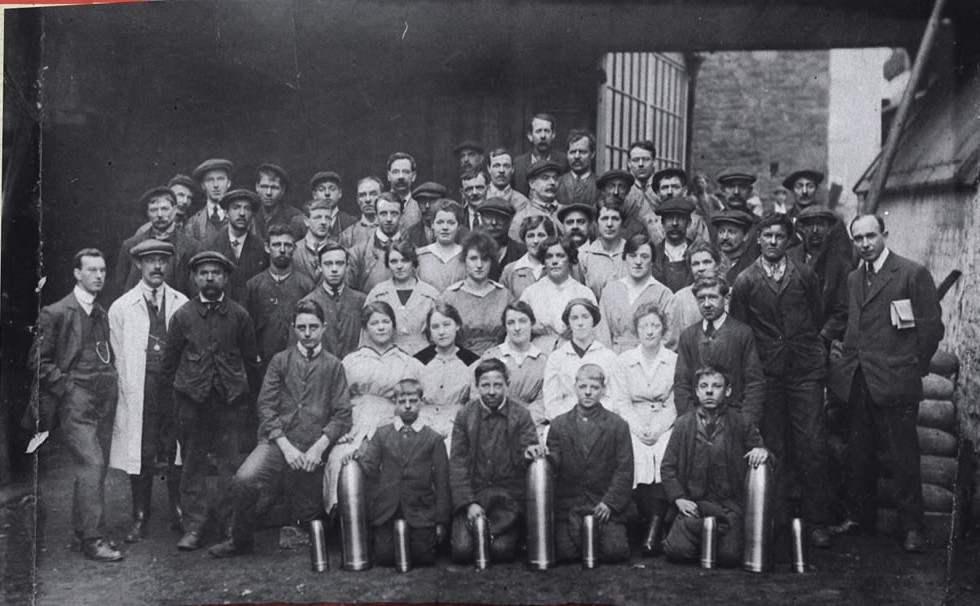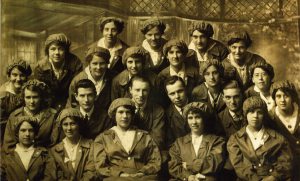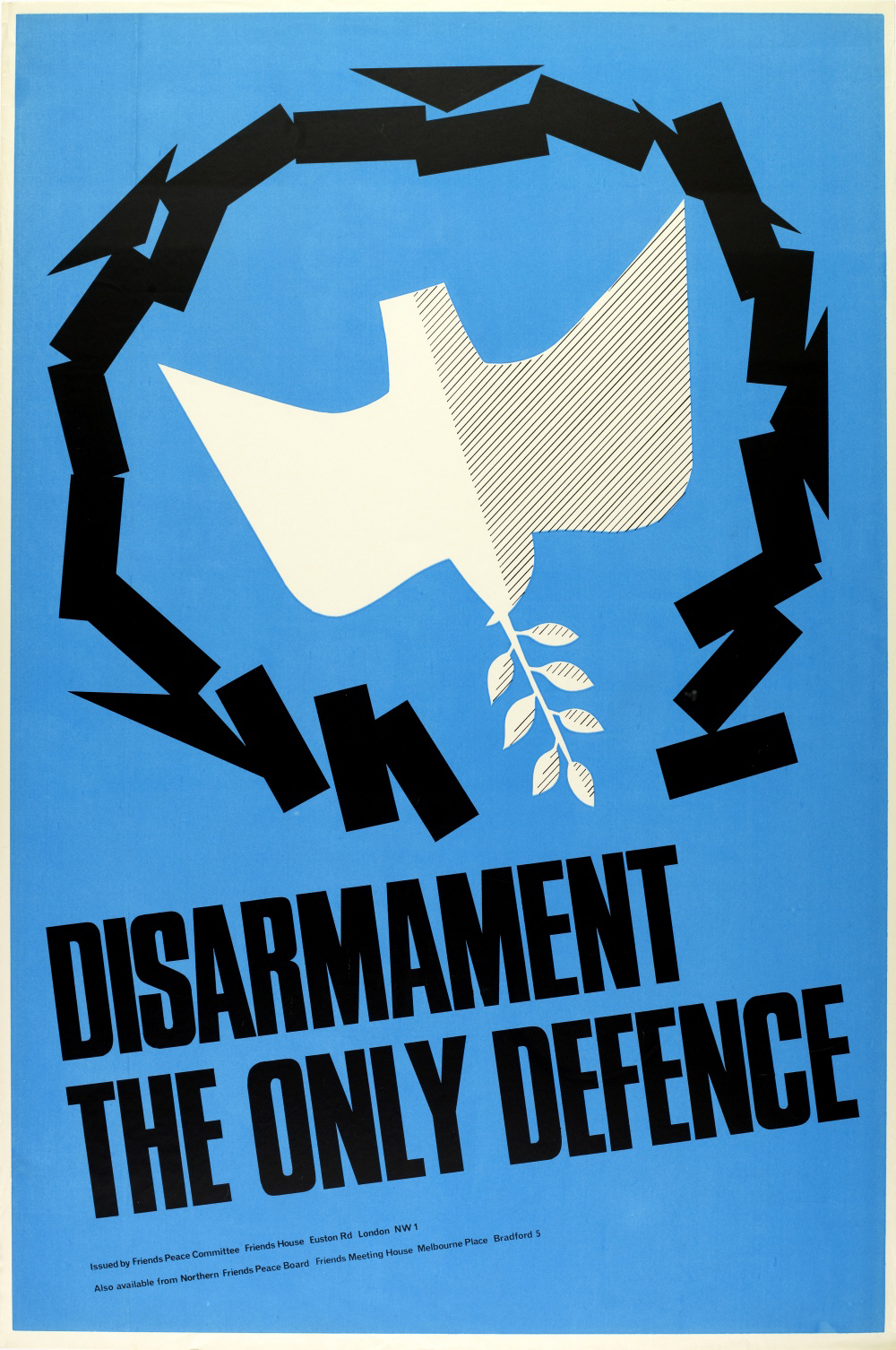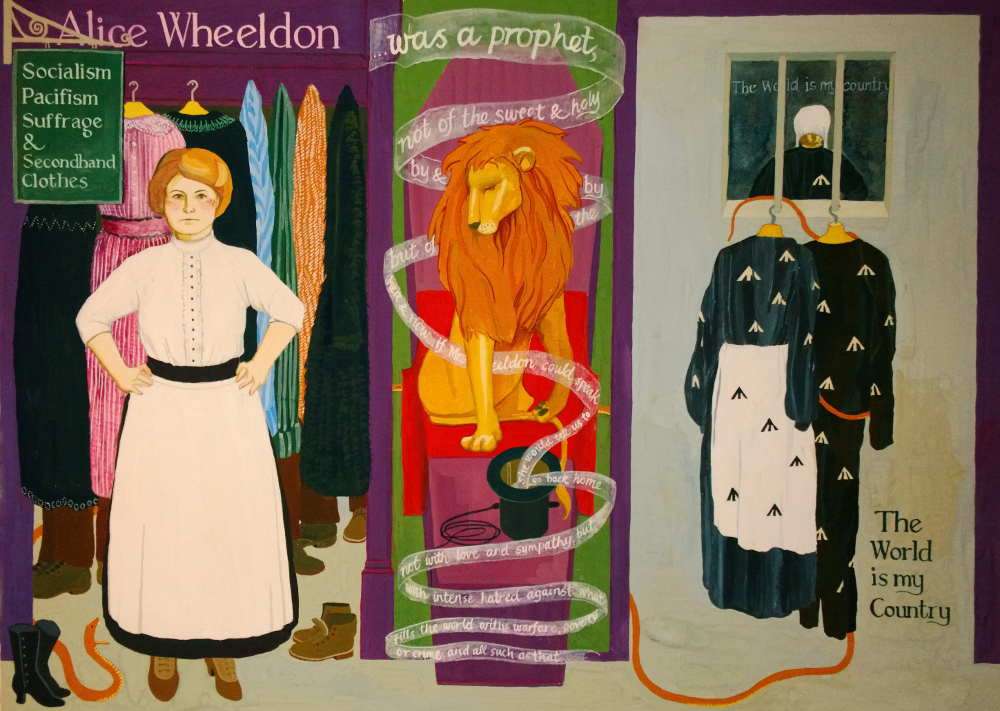Last week I was in Derby to talk about CAAT’s Arming all Sides project with the Derby People’s History Group (DPHG). I’m a big fan of local history societies with a radical edge and DPH has done some impressive work, especially towards the rehabilitation of Alice Wheeldon. Born in Derby, Alice, a feminist and socialist, was sent to jail in 1917 on the weak evidence given by an undercover MI5 agent (who had been planted in her house) for plotting to kill Lloyd George.
Alice always maintained her innocence throughout the trial and went on a hunger strike while in prison. Once released, she never truly recovered from the suffering she endured and died during the influenza epidemic in 1919.
In the last few years, the campaign to clear Alice’s name and reexamine her case – started by her great granddaughters – has gone from strength to strength and in May 2013 Derby dedicated a blue plaque to her memory.
This tragic story illustrates the extent to which, during WW1, militarism and widespread paranoia devastated the lives of ordinary people whose only ‘fault’ was to be vocal against the war. It is also a stark reminder that perceived threats to national security are often used to impinge on the freedoms of individuals and communities. Indeed, the use of agent provocateurs is nowadays common practice in the US and UK.
Identifying the links between WW1 and now is the main focus of the Arming all Sides project and during the meeting we looked at several case studies regarding the arms industry before and during the war. Among these were:
- Selling to all sides of conflict
- Selling to repressive regimes
- Intimate relationships with politicians and the press
- Fomenting war and security scares
We then discussed modern day parallels and how the main structural features of the global arms trade remain in place after 100 years (check this infographic for some of them). Some talked about how they felt things had actually worsened since WW1 as the arms industry has managed to reach surreptitiously into all parts of society while remaining invisible enough to be comfortably ignored. This led to a wider discussion on education and the need to engage with young students so they become aware of the negative impacts that weapons made in the UK have across the world.

We talked briefly about everyday life in Derby during the First World War and about the massive explosion at Chilwell munitions factory in 1918 which killed 134 people. Many of the canary girls (called like that as the TNT that went into the shells turned their skin yellow) employed at the factory lived in Derby and their journey took 2 hours each way.

Arms companies continue to operate in Derbyshire as a quick look at CAAT’s company map shows.
Among these, Chemring produces tear gas and plastic bullets that have been used against pro-democracy campaigners in Egypt, Kuwait and Hong Kong while Ultra Electronics is involved in drone technology. Rolls Royce has a site in Raynesway where work on Trident’s nuclear submarine propulsion programme is done. Nottingham CND, together with activists from Derby and across the East Midlands will be gathering outside it on the 6th August to highlight the horrors of nuclear weapons.
What is largely ignored and consigned to the dustbin of history is that between the two world wars, Britain actually came close to banning the private sale of arms. In 1935, a Royal Commission concluded, unanimously, that greater state control of the manufacture of arms and a blanket ban of arms exports was needed.

This public inquiry was not born out of a vacuum and was preceded by years of anti arms trade activism as arms companies were seen to have made a financial killing out of the WW1 bloodbath. Ultimately, the commission’s recommendations were never put in practice as public opinion swiftly shifted towards rearmament in response to Hitler’s actions in Germany.
While unfortunately little is remembered of the 1920s and 1930s disarmament movement, there is no doubt that it has much to offer in terms of inspiration and lessons. In the words of Eamonn McCann, who stood trial in 2008 for the part he played in shutting down his local arms company:
We believe that one day, the world will look back on the arms trade as we look back today on the slave trade, and wonder how it came about that such evil could abound in respectable society.
If you are organising a debate or public event we may be able to provide a speaker, a stall, or materials to distribute. Our volunteer speakers are also available to visit local groups and societies. Email outreach(at)caat*org*uk to get in touch.


